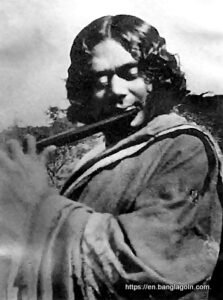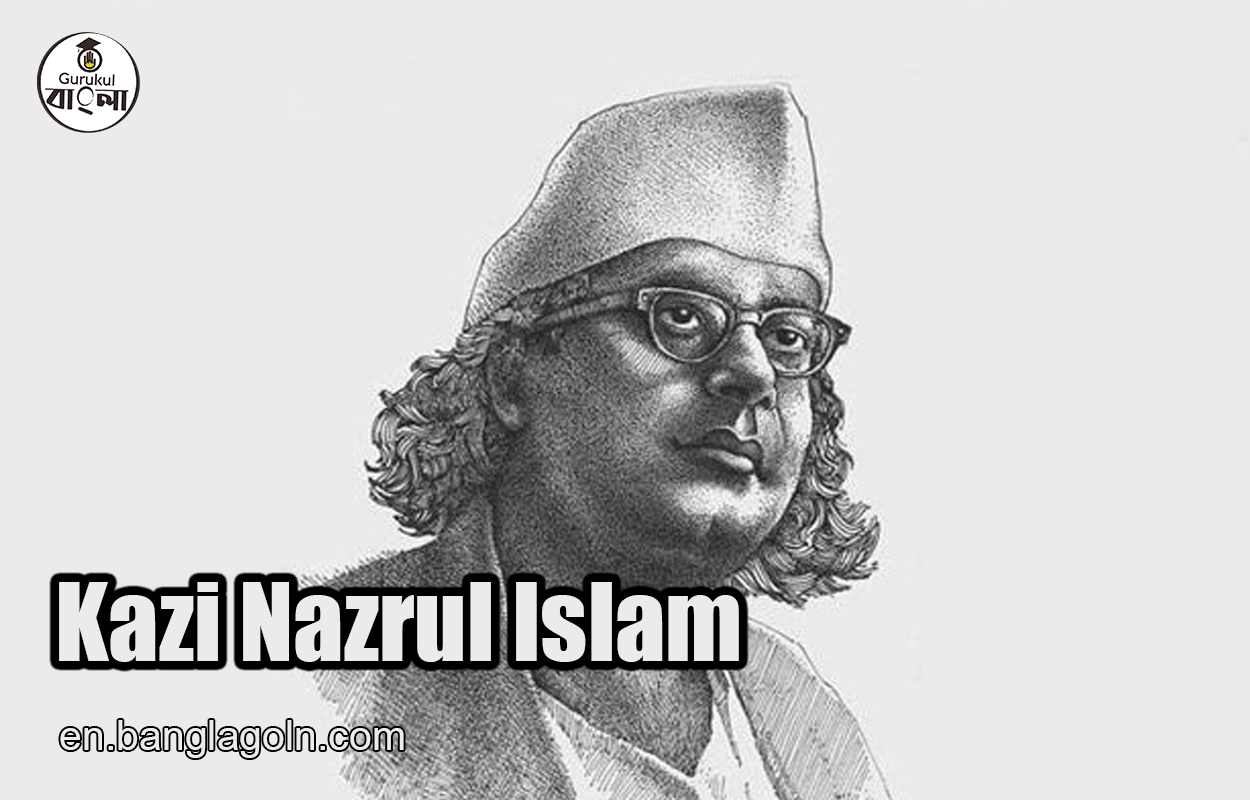Kazi Nazrul Islam (May 24, 1899 – August 29, 1976) was a Bengali poet, writer, musician, and revolutionary who is regarded as the national poet of Bangladesh. He was a pioneering figure in Bengali literature and music and is known for his revolutionary and patriotic poetry, which inspired many during the Indian independence movement and the Bangladesh Liberation War.

Kazi Nazrul Islam
Early Life and Education:
Nazrul was born in the village of Churulia in the Bardhaman district of Bengal, British India (now in West Bengal, India) to a Muslim family. He had limited formal education and dropped out of school at an early age due to financial constraints. He was self-educated and learned Bengali, Arabic, and Persian literature, as well as Western philosophy, poetry, and music.
Career:
Nazrul started his career as a soldier in the British Indian Army in 1917 but was soon discharged due to illness. He then worked as a cook and a caretaker at a mosque in Kolkata. In 1921, he became involved in the Indian independence movement and began writing poetry and songs that inspired the masses to fight for freedom. He was arrested several times for his revolutionary activities and spent a total of eleven years in prison.
Nazrul’s literary works include poems, songs, essays, and novels. He published his first collection of poems, Agnibina (The Fiery Lute), in 1922, which established him as a prominent poet of the time. His other notable works include Bidrohi (The Rebel), Dhumketu (The Comet), and Bhangar Gaan (The Song of Destruction).
Nazrul was also a gifted musician and composer. He composed over 4,000 songs, which are known as Nazrul Geeti. His music was a fusion of Indian classical music, folk music, and Western music. His songs were inspired by his revolutionary ideals and were popular among the masses.
Later Life and Legacy:
Nazrul’s health deteriorated in the 1940s, and he was diagnosed with several illnesses, including Parkinson’s disease. He spent the last years of his life in poverty and obscurity, but his contributions to Bengali literature and music earned him numerous accolades and honors. He was awarded the Padma Bhushan, India’s third-highest civilian award, in 1960.
Nazrul died on August 29, 1976, in Dhaka, Bangladesh. He is remembered as a symbol of resistance and patriotism and is revered by people in both India and Bangladesh. His works continue to inspire generations of poets, musicians, and writers, and his legacy lives on through his poetry, music, and ideals.
